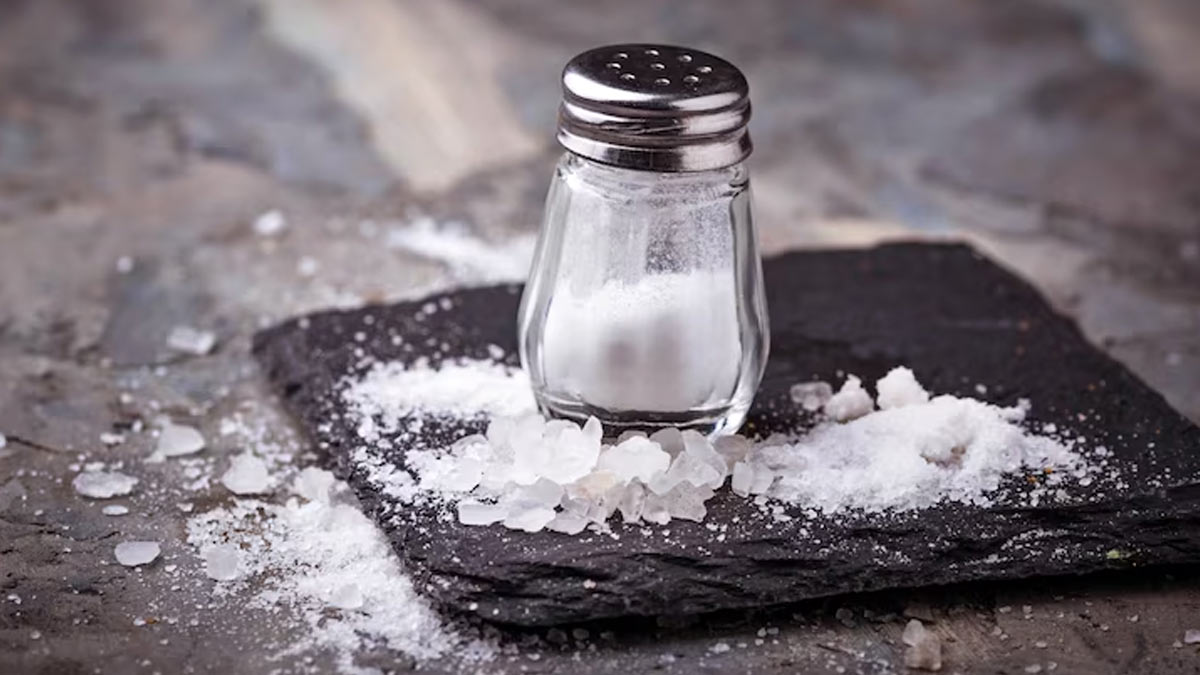
According to a recent report by the World Health Organisation, excessive salt consumption in food and beverages puts people's health at an increased risk. It has led to a rise in diseases like fatal heart disease and stroke. The report also estimated that 11 million deaths were globally associated with poor diet, of which 3 million were due to high sodium intake.
Table of Content:-
The WHO has warned that excessive salt consumption could cause 7 million deaths by 2030. Following this, the WHO has also set guidelines for sodium content in food. The new WHO criteria are intended to serve as a reference for health officials in its 194 member states as they negotiate with the food and beverage industry. They cover 64 food and drink categories.
WHO director-general Tedros Adhanom Ghebreyesus added that unhealthy diets are a major contributor to death and disease, and consuming too much sodium is one of the leading causes. He said there is a need to implement highly-cost effective sodium reduction policies to save an estimated seven million lives worldwide by 2030.
Impact Of High Salt Intake

The WHO suggests consuming around 5 grams (or a teaspoon) of salt daily. However, the majority of people eat about 10.8 grams. This can lead to the risk of developing of various health conditions, such as:
- Heart Failure
- Cardiovascular Diseases
- Strokes
- High Blood Pressure
- Premature Death
The report further stated that there are no further necessary measures in India except a mandatory sodium declaration on pre-packaged foods.
Also Read: What Happens To The body When You Cut Out Salt Completely
Tips To Reduce Salt Intake

Choose Fresh Over Packaged Foods
You should choose fresh foods over packaged or canned ones as they contain added salt. Buy fresh vegetables and fruits instead of purchasing frozen fruits and veggies.
Check The Label
When buying grocery items like frozen or canned vegetables, look for their food label and choose the one with less salt.
Keep Salt Out Of Your Dining Table
Most people have salt kept on their dining tables. But if you want to reduce its consumption, keeping it off the table is better. It can even lead to younger members of the family developing the habit of adding sugar.
Say No To Processed Foods
Processed foods might be tempting, but you should strictly avoid them at all costs. They are produced when food is packed, and substances like salt, sugar, or oil are added. Instead, look for healthier swaps like home-cooked food.
Also Read: Adding Extra Salt To Food Linked To Premature Death
Benefits Of Cutting Salt From Your Diet
Prevents Bloating
You can avoid health conditions like bloating when you reduce your salt consumption. It promotes your digestive health and improves your overall health.
Lowers Risk Of Heart Diseases
Consuming a lot of salt can make you more likely to get heart disease. Hence, a low-salt diet's ability to control blood pressure significantly reduces the risk of heart attack, stroke, and other heart-related conditions.
Enhances Bone Health
A high-salt diet increases the calcium lost through urination and increases the risk of bone illnesses like osteoporosis. Therefore, you can improve your bone health by lowering your salt intake.
Also watch this video
How we keep this article up to date:
We work with experts and keep a close eye on the latest in health and wellness. Whenever there is a new research or helpful information, we update our articles with accurate and useful advice.
Current Version
